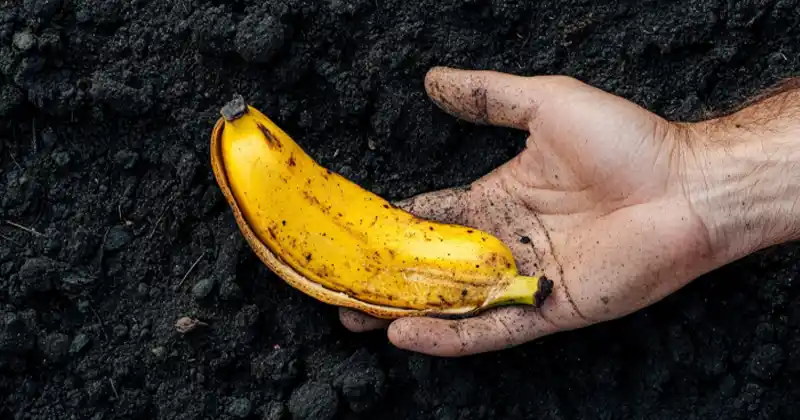Bananas are not only a delicious and nutritious snack, but their peels are also a hidden gem for gardeners. Often discarded as waste, banana peels are packed with essential nutrients that can significantly benefit your plants. Instead of tossing them in the trash, harness their potential to enrich your garden soil naturally. In this article, we’ll explore the various ways to use banana peels as a natural fertilizer, helping your plants thrive without the need for chemical additives.
Why Banana Peels Are Essential for Gardeners
Banana peels are rich in vital nutrients such as potassium, magnesium, phosphorus, and calcium—essential minerals that plants need to grow robustly. These nutrients play a crucial role in strengthening root systems, enhancing nutrient uptake, and improving overall plant health. Just as bananas provide us with essential nutrients, their peels can nourish your garden, making them an excellent, cost-free fertilizer.
Effective Ways to Use Banana Peels in Your Garden
There are several simple yet highly effective methods to incorporate banana peels into your gardening routine. Below are some of the best practices to maximize the benefits of this natural fertilizer.
1. Chopped Banana Peels
One of the most straightforward ways to use banana peels is to chop them into small pieces and incorporate them directly into the soil. Cutting the peels into smaller pieces speeds up their decomposition, allowing the nutrients to be released more quickly into the soil.
How to Use:
- Save your banana peels and chop them into small pieces.
- Bury the pieces about 5-10 cm deep in the soil, close to the plants’ roots.
This method can be applied year-round and is especially effective in organic gardens. For organic vegetable gardening, consider using peels from organic bananas to avoid introducing unwanted chemicals.
2. Whole Banana Peels
If you prefer a simpler approach, you can bury whole banana peels in your garden. This method is easy but takes a bit longer for the peels to decompose and release their nutrients.
How to Use:
- Dig a hole or trench in your garden bed and place the whole banana peels inside.
- Cover with soil and allow nature to take its course.
Whole banana peels are best used in areas where you plan to plant soon or around existing plants. The slow decomposition process will gradually enrich the soil, providing a steady supply of nutrients.
3. Adding to the Compost Pile
Another excellent way to use banana peels is by adding them to your compost pile. Composting banana peels enriches your compost with additional nutrients, making it even more beneficial when applied to your garden.
How to Use:
- Toss banana peels into your compost pile along with other organic waste like vegetable scraps, coffee grounds, and leaves.
- Regularly turn the compost pile to speed up the decomposition process.
When ready, your compost will be a nutrient-rich mixture that enhances soil fertility and promotes healthier plant growth. For more on composting, check out this guide to accelerate your compost pile with banana peels.
4. Banana Peel Tea

For those who prefer liquid fertilizers, banana peel tea is an excellent option, especially for indoor plants. This method extracts the nutrients from the banana peels into water, which can then be used to water your plants.
How to Make Banana Peel Tea:
- Cut the banana peels into pieces and place them in a jar filled with water.
- Cover the jar and let it sit for a few days, allowing the nutrients to infuse into the water.
- After a few days, strain the liquid and use it to water your plants.
Banana peel tea is particularly beneficial for flowering plants, helping them bloom more abundantly. Regular use of this liquid fertilizer encourages stronger, healthier plants.
Embrace the Benefits of Banana Peels for Your Garden
Banana peels are a powerful, natural tool for any gardener looking to improve soil quality and boost plant health sustainably. By incorporating banana peels into your gardening routine—whether chopped, whole, composted, or as a tea—you can provide your plants with essential nutrients without spending a dime. Not only does this method reduce waste, but it also promotes eco-friendly gardening practices. So, the next time you enjoy a banana, don’t toss those peels—use them to nurture your garden!
Inspired by this? Share the article with your friends!
